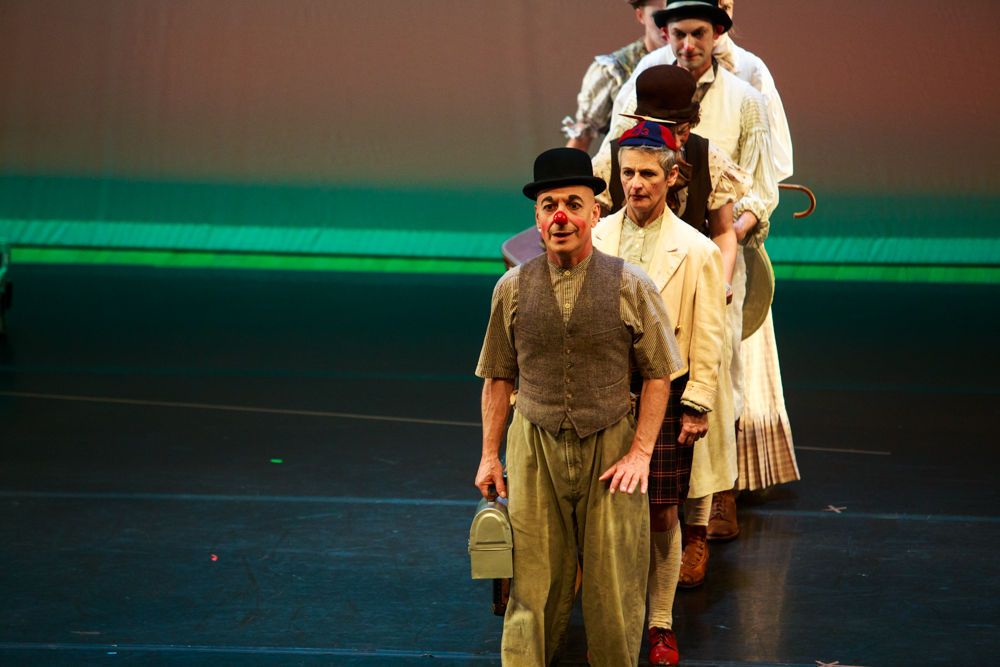
A new form of theatrical clowning is performed by the Brouhaha troupe at the NextNow Festival in the Clarice on Friday, September 11, 2015.
How do you wake a butterfly from a coma?
If you cut a child’s head open, can you check if his or her brain is working?
Is clothing from the early 1900s fashionable in a post-apocalyptic world?
Is this a post-apocalyptic world?
All these questions and more were not answered in Happenstance Theater’s BrouHaHa, a NextNow theater performance that was presented on Thursday and Friday. The show featured minimal props, an overabundance of comedic miming and little rhyme or reason.
The show follows five human-clown hybrids in a perplexing mash-up of song and no dance. They parade onstage as the child’s trumpet blares over the strained bellows of another member’s accordion. It soon becomes obvious that confusion and hysterics will pervade the hour.
The plot doesn’t lend itself to explanation, as is often the case when there is no plot. Edith, a tight-bunned, skinnier Trucible-type leader, marches her sad-puppy subordinates across the stage with little mention of time, place or objective. They “entertain” the audience with nebulous questions like “Are we here yet?” ”Is this it?” “Is it time?”
The clan, which might or might not be related in a familial or romantic way, survives asteroid crashes, a weirdly Titanic-like drowning scene where they all play Jack and various other apocalyptic nightmares. By the end, you’re rooting for them — to just die already.
The characters are poorly developed, and it’s hard to care about their fates. Yes, Rose is simultaneously the loudest and most timid character on stage, especially compared to the beautifully composed Pandora, but there’s just not enough information to feel compelled by the way she is transformed into a butterfly.
Slapstick humor breaks up otherwise tense moments — exaggerated facial expressions and slightly forced jokes feel like Abbott and Costello bits inside a melancholy piece of art.
Relief comes 40 minutes in, when a concrete location, the Apocalypse Café, is finally disclosed. A collective sigh of relief is mentally exhaled. Finally, the show doesn’t feel like an English major trying to solve a quantum physics problem.
At the Apocalypse Café, audience participation is encouraged during a little bit of improv. The patron who asked for lemonade got some lemon juice with a used band-aid on top and the young lady requesting a smoothie got a prickly treat.
“What kind of smoothie would you like?” Rose asked.
“Whatever kind you have,” she answered.
And quite the “whatever smoothie” it was, complete with stubble-filled shaving cream, made-to-order.
The bizarre transition from mysterious wanderings to a functional cafe complete with Pandora and her band as live music was perhaps the most interesting part, mainly because it was comprehensible.
The musical numbers scattered throughout added a not-so-subtle bit of social commentary, with lines like “Save the world./ Plant a forest./ Rescue the poorest.”
It’s hard to imagine anyone wanting to watch this performance a second time. It had funny moments, but it wasn’t hilarious. It had doleful songs, but it wasn’t moving. It asked us to question the idea of humanity, but it failed to give us a reason to do so.



